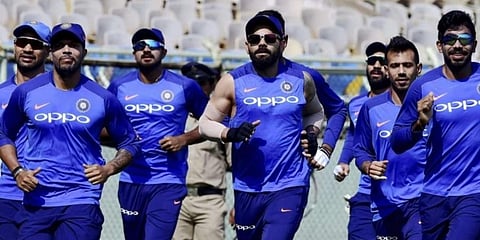

The galaxy of success stories is impressive and expanding. Prasidh Krishna, Washington Sundar, T Natarajan, Ishan Kishan, Suryakumar Yadav, Krunal Pandya, Shubhman Gill, Mohammed Siraj, Navdeep Saini, Axar Patel, Krunal Pandya… All debutant cricketers.
Anthem Biosciences, Bharat Biotech, Curefit, Delhivery, Druva Data, Ecom Express, EmCure, Firstcry, Global Logic, High Radius, Headspin, Innovacer, Meesho, MuSigma, Nykaa, Oyo Rooms, PhonePe, RateGain, Zerodha, Zomato are members of India’s 100 billion-dollar unicorns club.
What is the essential factor binding the debutant cricketers and the unicorns? They belong to the fraternity of the fearless, whether it is on the field of cricket or in the domain of tech innovation.
Suryakumar Yadav hoisted the first ball he faced in international cricket, and from Jofra Archer of the 150 km/hour fame, for a six. Krunal Pandya scored the fastest fifty. Prasidh Krishna overcame first spell thrashing to bag 4 for 54 in his first outing.
In the licence raj era India’s batting line-up began with Sunil Gavaskar and ended with GR Vishwanath. In the nineties it revolved around the ‘fab four’. In 2021 there is no 'God' in the playing XI but the batting line-up extends all the way till Shardul Thakur - the Indian team has a bench strength which is the envy of world cricket.
India's entrepreneurial story used to be about family-owned entities. This is no longer the case. More critically there is competition for raising capital and recording valuations. Of the 500 listed entities, over 300 are valued at over a billion dollars in market capitalisation.
In comparison the top 100 billion dollar unicorns, as per a recent Credit Suisse report, mostly born in the new millennium, command a combined market valuation of over USD 240 billion. As with cricket the bench strength is deep - PE investor Mohandas Pai says another 150 start-ups or 'soonicorns' could soon join the parade.
The success of the cricketers and the unicorns represents an important lesson for the political class. Young India can not only survive competition but also thrive when there is competition. Consider the success of Indian cricket.
The rise of confidence is co-terminus with the Indian Premier League. Thanks to the IPL cricketers from across India and income levels got to play/compete with the best in the world and hold none in awe. Unsurprisingly India is ranked first in Tests, second in T20 and third in ODI – and its batters and bowlers are on the top 10 list of players in Tests, T20 and ODI.
The success of unicorns is not dissimilar. Given access to capital and opportunity India’s start-ups are competing for capital and market share with the best in the world - and the parade of innovation in fin-tech, logistics, food-tech, insurance, energy, e-commerce or distance education even as they compete with deep pocketed global players reflects the confidence.
The reigning theology of the political class is that Indian enterprise must be protected. This is despite the fact that since the 1990s companies have thrived when the sector is opened up. India’s most valued bank is also one of the most valuable banks in the world.
Two decades after the opening up of insurance LIC continues to reign. The success of India’s software giants Infosys, TCS and others illuminates the principle that competition sharpens Indian skillsets and enterprise.
Contrary to the narrative often presented by politicos, entrepreneurial India is not asking to be molly-coddled from competition. What is needed is enabling conditions but the track record of governments has been patchy and is reflected in the eco-system.
Ideally, given the scale of opportunities, private equity/venture capital funds should be queuing up to set up shop in India. Fact is the bulk of the funds investing in Indian start-ups prefer to set shop in Singapore - and often 'convince' the start-ups they fund to shift their headquarters either to Singapore or the US.
The economics of business models demands review of the approach to policy design. India's entrepreneurs have migrated to the new millennium but policies are stranded in the past. The policy landscape - and not just for start-ups - is littered with disincentives, distortionary taxation, heavy handed regulation and compliance cholesterol.
The crux is the pattern of engagement. The discussions which precede the budget are held in silos - economists, bankers, exporters, industry and the billionaires. Nothing stops the government from inviting innovators and disruptors to these meetings.
And the engagement must go beyond the businesses. India’s many problems require new thinking. The government has promised to deliver water to every home and double agricultural income. Add the sad state of primary education and broken health care apparatus.
Whether it is the political regime in the states or the government at the Centre it is critical to recognise that the usual committee approach has long since breached the statute of limitations. The fact is resolving the issues facing India requires disruptive and innovative thinking. Why not engage with, invite and involve the fraternity of the fearless to suggest solutions which address the challenges!
(The writer is author of 'The Gated Republic', 'Aadhaar: A Biometric History of India's 12 Digit
Revolution' and Accidental India. He can be reached at shankkar.aiyar@gmail.com)